The particular creative genius of Paul auster, capable of gliding into all his literary proposals, extends in a singular way throughout his work. This is so much the case that it is not easy to determine which podium of works to recommend by this writer, awarded among others, with the Prince of Asturias Award 2006.
But many times, while assuming that special brilliance of each and every one of an author's works, you end up tuning in in a greater way with those that are capable of winning over you in the subjective, in that plot where the fiction posed and your own reality reflect similar waves.
Either that or you simply get carried away by fascination. Because few authors capable of moving through that paradoxical lyricism composed in prose made in Auster. A sort of narrative balance between sophistication and simplicity, of which Auster is a teacher.
With even cinematographic streaks that at times evoke Woody AllenBecause of the surreal point and the scene of an alienating or ecstatic New York to creative necessity, Auster discovers in his characters that piece of soul that belongs to each and every one of his readers.
Top 3 recommended novels by Paul Auster
In the country of last Things
Anna Blume recounts in a letter to her boyfriend, sent from an unnamed city, what happens in The Land of Last Things. Anna is there to search for her brother William, describing a land where the quest for death has replaced the ups and downs of life: euthanasia clinics and murder clubs flourish, while athletes and Runners don't stop until they literally drop dead from exhaustion, and jumpers throw themselves off rooftops.
But Anna will try to survive in that devastated country, where everything that exists is possibly the last specimen of its kind... This is probably one of the author's most suggestive titles, and its development accompanies the work's authenticity. Dystopia opens as soon as we start to discover the story. A particular science fiction slipped between a futuristic environment presents us with the great existentialist thoughts that lead from fatalism to a certain brilliance of the anecdote that is our life.
The night of the oracle
Sidney Orr is a writer, recovering from a disease that no one expected him to survive. And every morning when his wife Grace leaves for work, he still weak and bewildered, walks through town.
One day he buys a blue notebook at El Palacio de Papel, the bookstore of the mysterious Mr. Chang, which seduces him, and he discovers that he can write again. Her friend John Trause, also a writer, also sick, also the owner of another of the exotic Portuguese blue notebooks, has told her about Flitcraft, a character who, like Sydney, survived an intimate brush with death.
Chance, chance as a component that ends up compacting destinies, those of all of us. The magic of the everyday seen with the right perspective. An exercise in hypnosis that makes us therapists for characters brimming with humanity.
Baumgartner
As Sabina would say, "There is no nostalgia worse than longing for what never, ever happened." And the problem with the passage of time is that the monotony of yesteryear is fictionalized and idealized, as if it were something magical, stolen by misfortune. Memories are then the best movie, the greatest novel ever written. Because reason and imagination agree to recompose the story of our lives in the most beautifully melancholic way that can be done.
Baumgartner is an eminent writer and university professor, as eccentric as he is incredibly tender, who lost his wife nine years ago. His life was defined by the deep and abiding love he felt for Anna and now, at 71, he continues to struggle to live in her absence.
Their common story begins in 1968, when they meet as penniless students in New York and despite being almost opposites in many aspects, they begin a passionate relationship that will last for forty years. The overcoming of grief over the loss of Anna is interspersed with wonderful stories - from her youth in Newark to her father's life as a failed revolutionary in Eastern Europe - and with a powerful reflection on the way we love at different stages of life. life.
Considering the particularity of the extensive Paul Auster bibliography, the taste for one or another of his works may differ remarkably from one reader to another. In his deep and sometimes crazy narrative; in its mutable architectures where the scenes come and go like unexpected stagehand; in all this resides that possible selection very different in each reader. But come on, I've already decided ...
Other recommended books by Paul Auster ...
A man in the dark
August Brill has been in a car accident and is recovering at his daughter's home in Vermont. He can't sleep, and makes up stories in the dark. In one of them, Owen Brick, a young magician who has adopted the stage name of "The Great Zavello", wakes up at the bottom of a pit with very smooth walls that he cannot climb. He doesn't know where he is or how he got there, but he hears the noise of a battle.
Until Sergeant Serge appears, who helps him out of the well so that Brick can fulfill his mission. America is immersed in a dark civil war. The attacks of September XNUMX did not take place, and neither did the Iraq war.
Brick doesn't understand anything. But he learns that his mission is to assassinate a certain Blake, or Block, or Black, a man who cannot sleep, and that like a god, he invents at night that war that will never end if he does not die. Although his name is not Blake or Block or Black, but August Brill, and he is a literary critic who has suffered an accident, he is recovering at his daughter's house in Vermont, and he does not have the infinite powers of God to invent infinite worlds , but he can tell us a fierce and truthful fable of our days.
A country bathed in blood
We all want to write the story of our life. But only Paul Auster can accompany it with precise images capable of recovering those days related and finally represented in moments. Auster has his own story bathed in blood that is precisely immersed in the roots of one of the most bitter conflicts in the United States delivered to arms as a tool to defend his homeland and his family...
Paul Auster, like most American children, grew up playing with toy guns and imitating cowboys in Westerns. But he also learned that families can be torn apart by violence: his grandmother shot and killed his grandfather when his father was just six years old, affecting the lives of the entire family for decades. .
No issue divides Americans more than the gun debate, and every day more than XNUMX people die from guns. These figures are so far from what happens in other countries that one can only wonder why. "Why is the United States so different, and what makes us the most violent country in the Western world?" Auster writes.
Paul Auster's narrative mastery meets Spencer Ostrander's striking photographs in a book that mixes biography, historical anecdotes, and accurate data analysis. A country bathed in blood it ranges from the origin of the United States, marked by the armed conflict against the native population and the enslavement of millions of people, to the mass shootings that dominate the news, in a vicious circle that feeds on itself.
4 3 2 1
In this book, the brilliant author lavishes on his unique aesthetics plagued with metaphors of the everyday, capable of elevating the routine to take it to hell the next moment. In my opinion he is a different author, maybe not entirely conventional, but if you are able to get into his wavelength, you enjoy like a dwarf.
The generational narrative through his characters is something already seen in some of his previous works, although the approach on this occasion is quite far. In this case, the coming of age resource that is usually used to guide us in the temporal evolution of a character is fragmented in different planes, with all those possibilities that vital decisions can offer. I do not dare to say that this is about fantasy, Auster being a 100% realistic writer. But yes, at least, it moves in an imaginative world about existence, alternatives, destiny and everything that ends up shaping our present or another present that we consider we could have touched.
The story starts from Newark, New Jersey, that shadow of Manhattan whose 8 miles away seems like an abyss. That's where Archibald Isaac Ferguson, the protagonist of the novel, a lucky protagonist who was born on March 3, 1947 and who has 4 shots in which to develop his life. The options multiply as Archibald grows, and only the love for Amy Scheniderman is repeated on all levels, although under different conditions.
However, neither the boy from the Ferguson 1, nor the 2 nor the 3 nor the 4 can escape the same outcome for his story, and the reader becomes fully aware of that as the reading progresses.
A story to take off your hat to, for its masterful conduction and for that kind of changing scenery through which the same central character passes, different at each new moment. Paul Auster is that writer capable of presenting his stories to us as a theater where the lives of his characters pass, a stage that we can almost go up to to transmute as we read and read.
The Inner Life of Martin Frost
The Planeta publishing house launched, through its Booket label, one of those books for those who want to get closer to the world of the writer or for those who dream of being able to dedicate themselves to writing professionally. Is about The Inner Life of Martin Frost. I personally prefer the book of Stephen King, While i write, a work between the didactic and the autobiographical.
But I do not intend to detract from this novel by Paul austerThey are simply different from that approach to the world of the storyteller. The Inner Life of Martin Frost It was published in Spain ten years ago, a more than adequate time for a traditional writer to write about the fact of writing, living from writing and surviving to tell about it.
And when the writer can dedicate himself to sitting nonchalantly narrating about the world in which he lived, it turns out that what is more than necessary is to delve into the writer's way of thinking, into his way of seeing the world as a cascade of mundane anomalies. , of anecdotes, misunderstanding and sudden lucidity, that of some muses who laugh at the poor deranged writer. Being a writer is not always as sweet as it seems... A book made into a movie, in case you prefer the seventh art version, directed by Paul Auster himself:
Martin Frost has spent the last few years writing a novel and he needs a break. His friends Jack and Anne Restau have gone on a trip and have offered him their country house. But in the middle of the silence an idea begins to spin in his head and Martin begins to write. It will not be a long story and he will stay with his friends until it is finished. He wakes up the next day to a half-naked girl in his bed who says her name is Claire, who is Anne's niece, apologizes and is finally accepted by Martin.
But the story he's writing and the desire for Claire grow at the same time. And when the writing of the story comes to an end, the mysterious and carnal Claire - the Restau do not have nieces - begins to fall ill ... Martin Frost's inner life has a complicated history. At first it was a thirty minute script.
The project ran aground. It then became one of the last films of Hector Mann, the protagonist of The Book of Illusions. And now it's this movie script that Paul Auster has written and directed. «His characters are tireless inquisitors and when they do not travel the world, they embark on an inner journey. But always the odyssey, immense or insignificant, is at the center of his work ”(Garan Holcombe, California Literary Review).

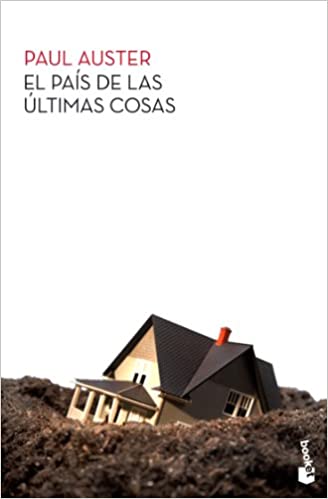
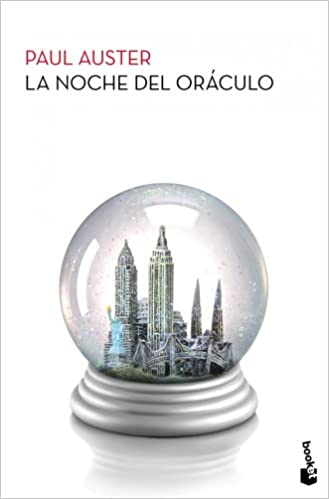

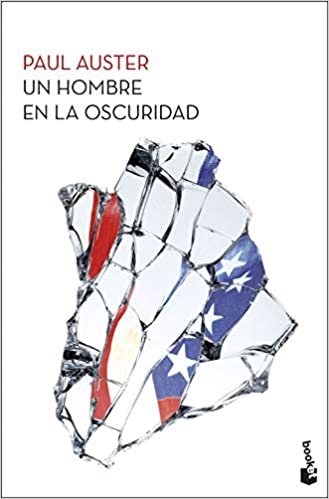
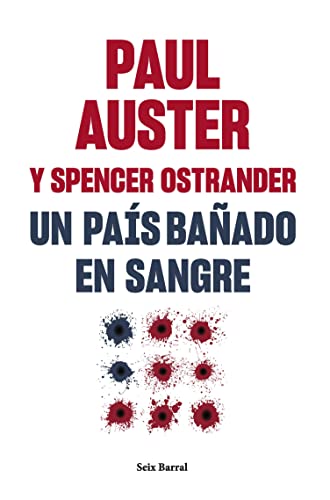
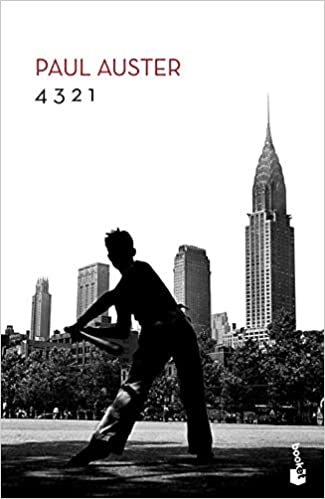
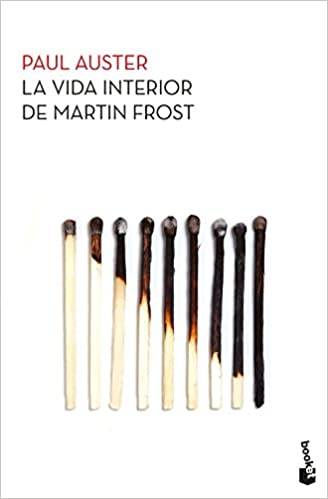
4 comments on “The 3 best books by the brilliant Paul Auster”